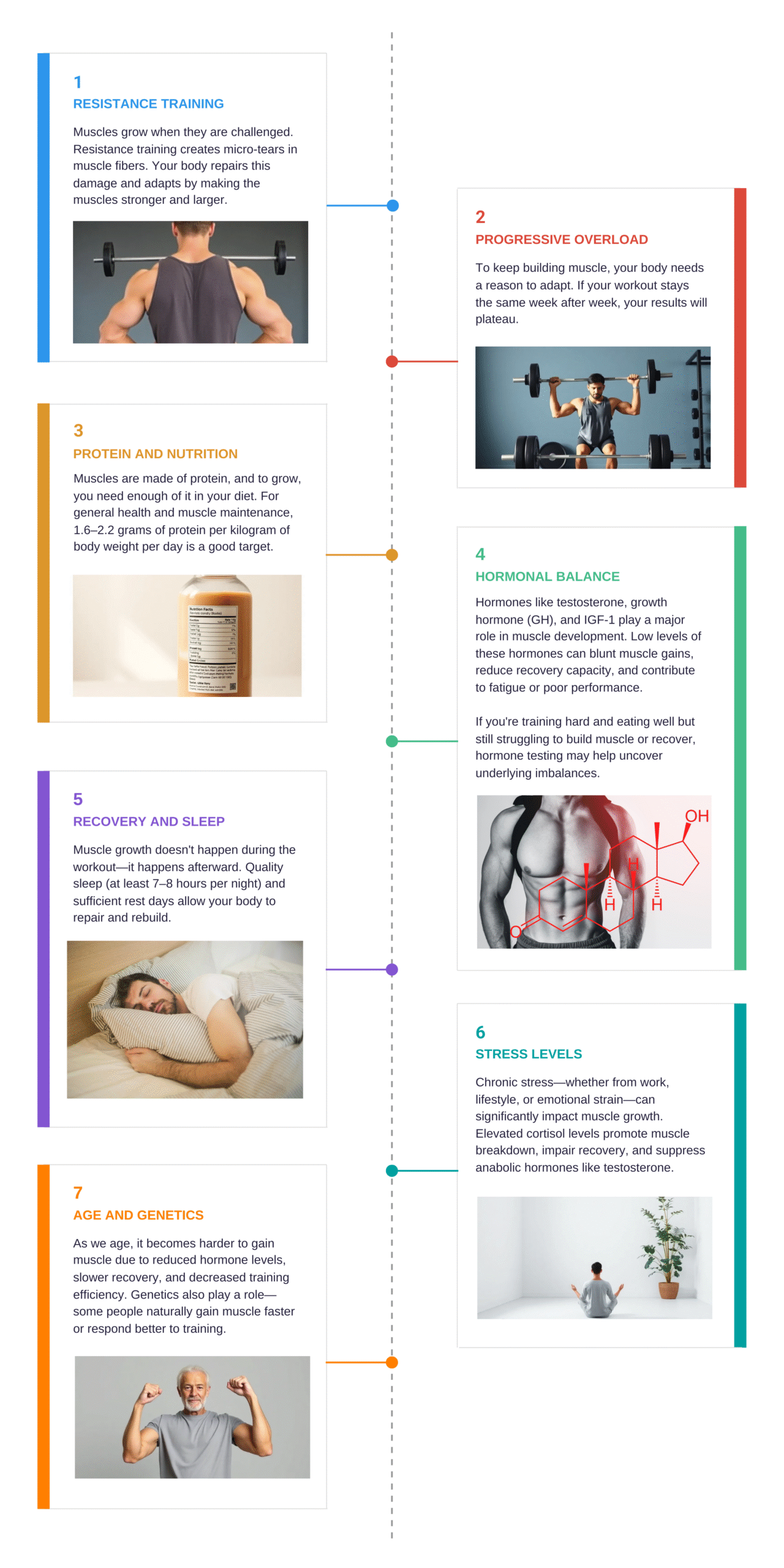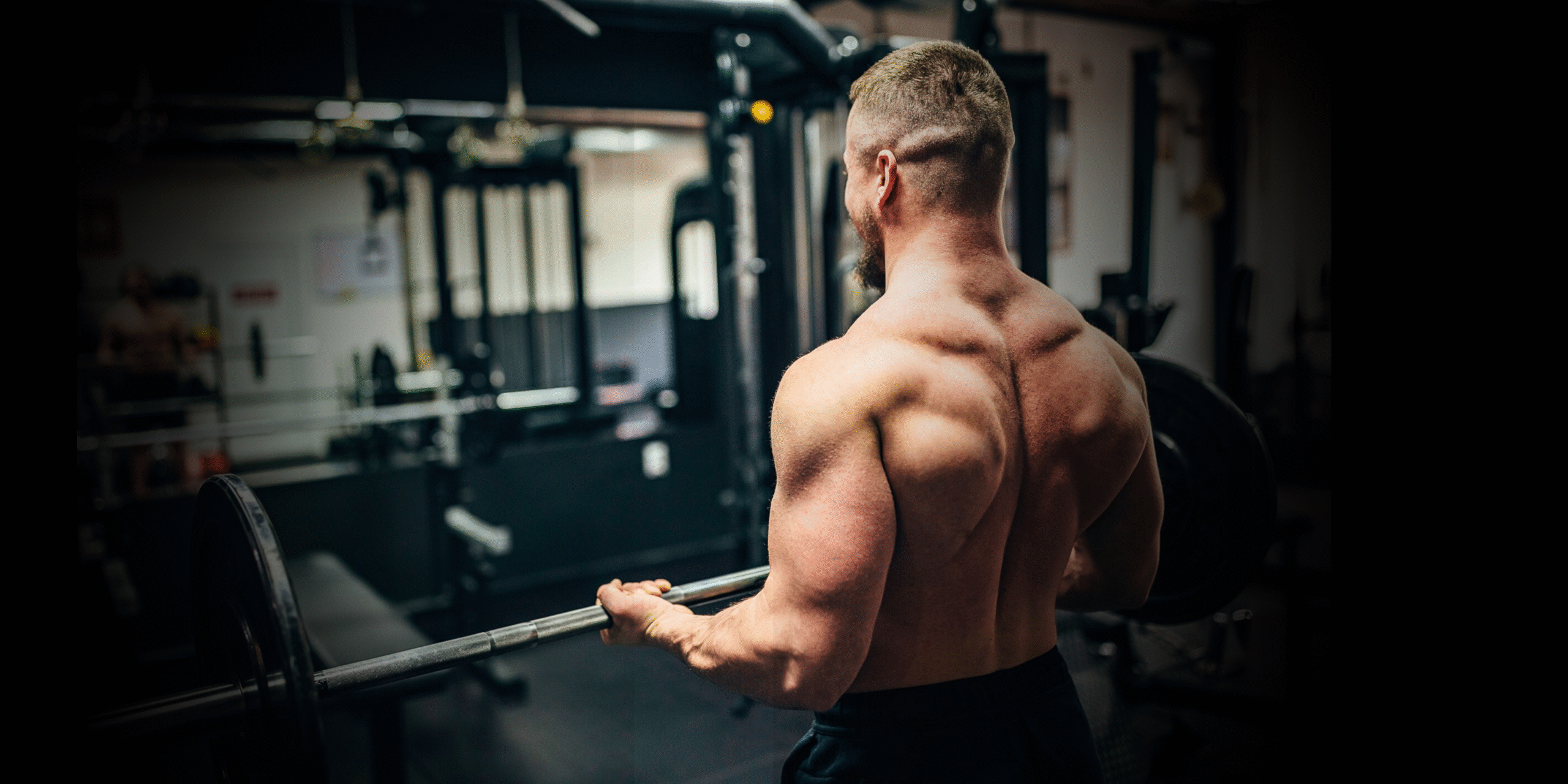Many patients come to us wanting to build muscle—whether for better health, improved performance, or just to feel stronger. But muscle growth doesn’t happen by accident. It’s a process influenced by several key factors that work together. Here’s a breakdown of what really matters:

1. Resistance Training
Muscles grow when they are challenged. Resistance training—using weights, bands, or bodyweight—creates micro-tears in muscle fibers. Your body repairs this damage and adapts by making the muscles stronger and larger. Without consistent resistance training, muscle growth won’t happen.
2. Progressive Overload
To keep building muscle, your body needs a reason to adapt. That means gradually increasing the weight, number of reps, or training intensity over time. If your workout stays the same week after week, your results will plateau.
3. Protein and Nutrition
Muscles are made of protein, and to grow, you need enough of it in your diet. For general health and muscle maintenance, 1.6–2.2 grams of protein per kilogram of body weight per day is a good target.
For advanced bodybuilders aiming for lean mass gain, protein intake may go even higher—up to 2.5 grams/kg or more—especially during calorie deficits or cutting phases.
In terms of calories, protein should typically make up 25–35% of total daily intake, depending on the goal (bulking vs. cutting). Adequate carbohydrate and fat intake are also important to support training intensity and hormonal balance.
4. Hormonal Balance
Hormones like testosterone, growth hormone (GH), and IGF-1 play a major role in muscle development. Low levels of these hormones can blunt muscle gains, reduce recovery capacity, and contribute to fatigue or poor performance.
- If you’re training hard and eating well but still struggling to build muscle or recover, hormone testing may help uncover underlying imbalances.
5. Recovery and Sleep
Muscle growth doesn’t happen during the workout—it happens afterward. Quality sleep (at least 7–8 hours per night) and sufficient rest days allow your body to repair and rebuild. Poor sleep or chronic under-recovery increases cortisol (a stress hormone) and can interfere with both growth and fat loss.
6. Stress Levels
Chronic stress—whether from work, lifestyle, or emotional strain—can significantly impact muscle growth. Elevated cortisol levels promote muscle breakdown, impair recovery, and suppress anabolic hormones like testosterone.
- Even with a good training plan, unmanaged stress can stall your progress. Relaxation techniques, improved sleep hygiene, and in some cases, adrenal support or hormonal therapy may be needed.
7. Age and Genetics
As we age, it becomes harder to gain muscle due to reduced hormone levels, slower recovery, and decreased training efficiency. Genetics also play a role—some people naturally gain muscle faster or respond better to training. However, with the right program, progress is still possible at any age.
Takeaway
If you’re training hard but not seeing results, it might not just be your workout—it could be your recovery, diet, hormones, or stress levels. At Transcend Clinic, we offer personalized assessments, hormone testing, and tailored programs to help support your muscle-building goals.







